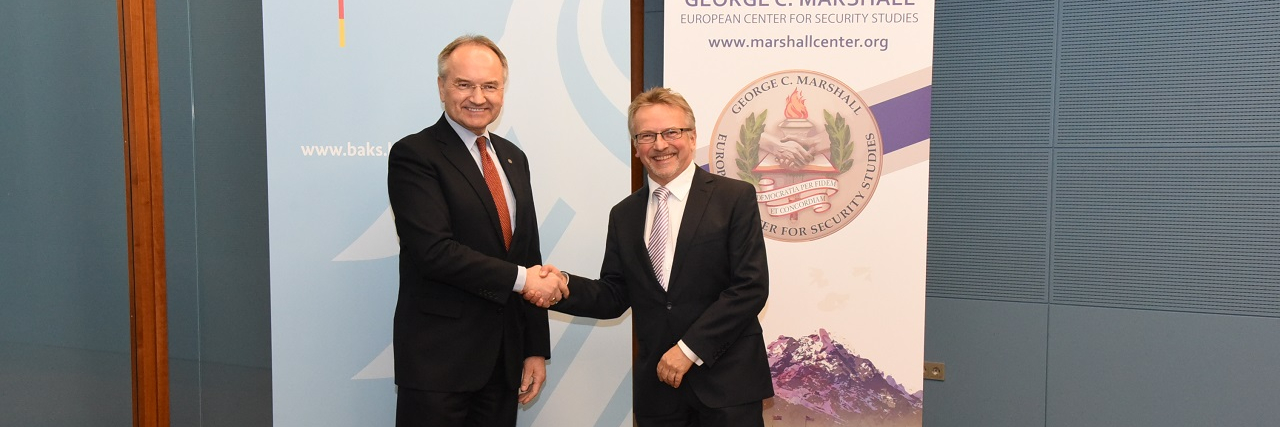
Berlin Conference Highlights the Way Ahead for Transatlantic Relations
By German Senior Master Sgt. Mark Winkler and Christine June
Public Affairs Office
George C. Marshall European Center for Security Studies
BERLIN (Jan. 22, 2018) – The George C. Marshall European Center for Security Studies and Bundesakademie für Sicherheitspolitik (Federal Academy for Security Policy) hosted a two-day conference on “Transatlantic Relations: Prospects and New Directions Amidst Political Change” here Jan. 18 and 19.
“We invited about 70 officials and experts across Europe to discuss the current state of transatlantic relations in light of various political processes and changes that are going on across the community,” said Dr. Matthew Rhodes, Marshall Center’s director of programs in Central and Southeastern Europe. “This conference gave us a chance to go a bit deeper, beyond the superficial look at headlines and disputes, to talk more about what is really working well in the relationship.”
“Most importantly,” he added, “We discussed what kind of things we can do now to strengthen these positive trends.”
Dr. Karl-Heinz Kamp, president of the Federal Academy for Security Policy, said that it made sense for his academy and the Marshall Center to work together. The Federal Academy for Security Policy is a German governmental institution that educates people from ministries and agencies on security policies. The Marshall Center is a German-American institution that hosts various programs on security studies for participants from around the globe.
“The common ground between our two institutions is significantly high so I am sure we will have more discussions in the future to take stock, exchange perspectives and consider policy ways ahead,” Kamp said.
Panel discussions began with the current status of transatlantic relations at the beginning of 2018. The next panel discussed transatlantic security and defense in regards to achievements, limitations and prospects.
Discussions on the second day included transatlantic economics and relations with Russia in President Putin’s fourth term.
“The partnership we are having with the Federal Academy for Security Policy is a good example of the broader German-American partnership, which is a part of the Marshall Center’s nature and mission, as well as an important component of the transatlantic community,” Rhodes said.
Beside the United States and Germany, conference attendees hailed from Albania, Bosnia and Herzegovina, Bulgaria, Croatia, Czech Republic, Denmark, Estonia, France, Greece, Latvia, Lithuania, Luxembourg, Montenegro, Poland, Romania, Serbia, Slovakia, Slovenia and the United Kingdom.
“Every participant should take home that it’s much better to talk about the real issues – instead of bashing each other – because then you discover that there is much more ground for cooperation,” Kamp said.
